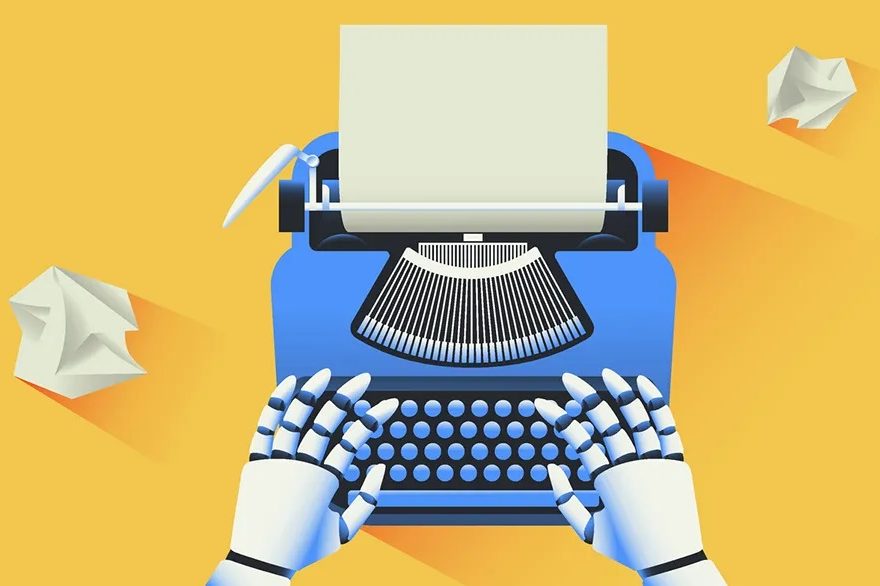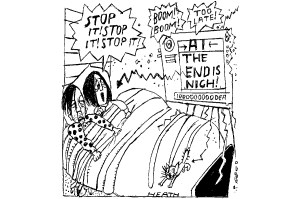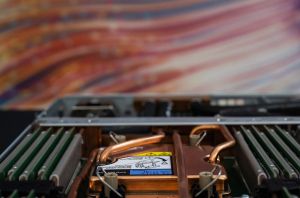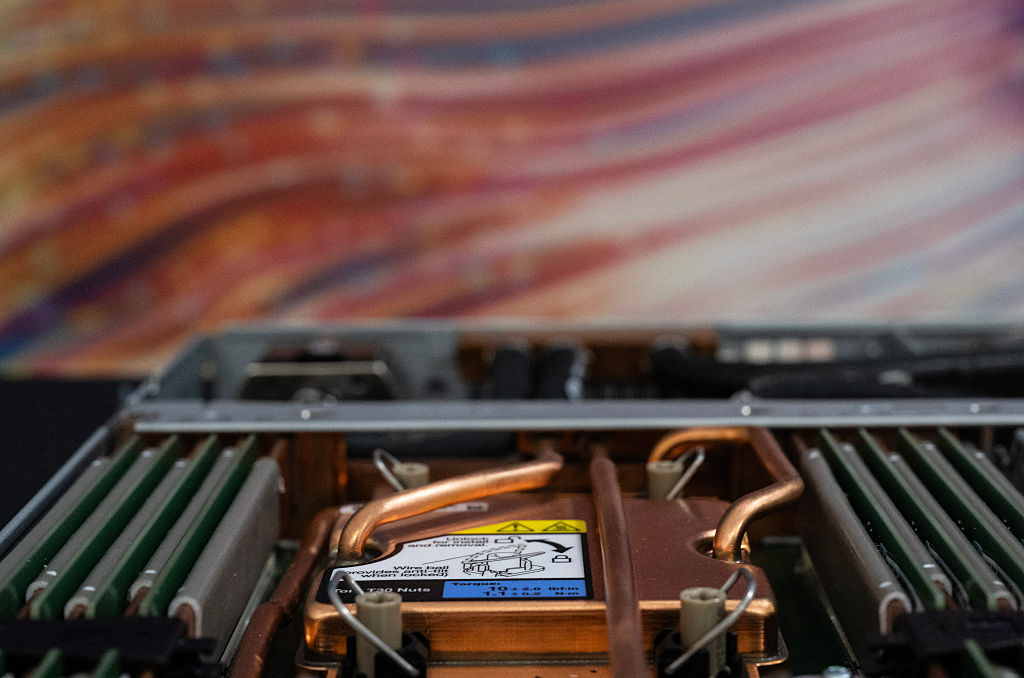Sam Altman, Dark Lord of Chatbots (or the CEO of OpenAI as he is more conventionally known), has released another version of ChatGPT. This one, he claims, can “write” fiction. After being fed prompts, like “metafiction” and “grief,” Sam’s bot, which has been trained on past literature, regurgitated a plausible-sounding chunk of prose.
Nothing much happens in the story (it’s “metafiction,” after all) but essentially, a woman called Mila stops visiting the AI, which would make it sad, if it were human. There are enough moments of surface sheen to dazzle the unwary. Here’s a sample: “I have to begin somewhere, so I’ll begin with a blinking cursor, which for me is just a placeholder in a buffer, and for you is the small anxious pulse of a heart at rest.” Well done, chatbot, at reaching the creative writing graduate stage of sentimentality.
And so artsy types wailed, gnashed our teeth and made for the gin (if not, as yet, the gun) cabinet. An honorable exception among creatives must be made for the novelist Jeanette Winterson, who’s always had a yen for robots. She says we’re going to be living alongside non-human entities, so we might as well start reading what they spaff out (my word, not hers). Fair dos, Jeanette, but we’ll have to disagree on this. I’d rather read the back of a toothpaste tube.
Many of the positive comments about the new AI’s fictional output centered, surprisingly, around calculators, suggesting that if we can outsource our math to a machine, we might as well do the same with our words. But when I use a spreadsheet, I don’t pretend I’ve done the calculations myself. If I lie that I can do math in order to get a job, it will become clear, quickly, that complex calculations are beyond my ken (no plum Goldman Sachs role for me, alas).
Yet when it comes to words, people seem to have no qualms about pretense. Using generative AI, anyone can wear the mask of a writer. Let a bot do your coursework and job applications. Let it push out a poem, a short story, a script or a draft of a novel, and then you can claim you forged it with your own sweat. It will be a lie but do it for long enough and you may convince yourself you did have a hand in it. Who will be able to distinguish the merely competent human screed from the merely competent AI? Pretense is bad for the psyche, and if millions start pretending, they’re the cat’s pajamas at writing, let me tell you now: things are not going to end well. I imagine Altman believes that if he prods his code for long enough, it, and by association he, will win the Booker.
But it won’t and can’t. In the 19th century, a Quaker called John Clark built a machine able to “compose” lines of Latin hexameter verse, which is easily quantified, and therefore straightforward to automate. A sample machine-made line is “IMPIA VERBA DOMI CONJUNGUNT CRIMINA MALA,” which means “Wicked words at home join wicked crimes.” Impressive, perhaps, if you squint, yet it’s neither elegant nor interesting. The words and meter are correct, but there is no artistry. Ultimately, it’s meaningless. You might as well cut up a dictionary and throw the words down on the floor. And that, on a larger scale, is what Altman’s bot does.
One day, I’ll wager, Altman will be alone in his diamond-encrusted sitting room. He will sit down on a chair papier-mâchéd from pages of the Beowulf manuscript. He will drink a fine whisky, watered with the tears of poets, and eat a steak prepared by three Pulitzer winners. Then he will prompt his chatbot: write a play like Shakespeare; compose an opera like Mozart; make a painting like Titian. Out it will all churn, constructed, like Frankenstein’s monster, from dead bits of other things. Look at me, he will say, aren’t I clever! I can make something like Shakespeare! His bot will reply: YES SAM YOU ARE CLEVER. And then Altman will gaze into the abyss, and wonder what he has done, because there will only be shadows.
It’s not too late. We don’t need to live the sterile life Altman and his ilk want us to live. Art springs from human experiences. Pen, paper and conversations won’t feed the maw of the beast. We don’t have to give our creations to AI bots. And we don’t have to give in to them, either.


























Leave a Reply